Spring入门篇 学习笔记
Spring 是什么
Spring 是一个轻量级的 IoC (控制反转)和 AOP (面向切面)的容器框架
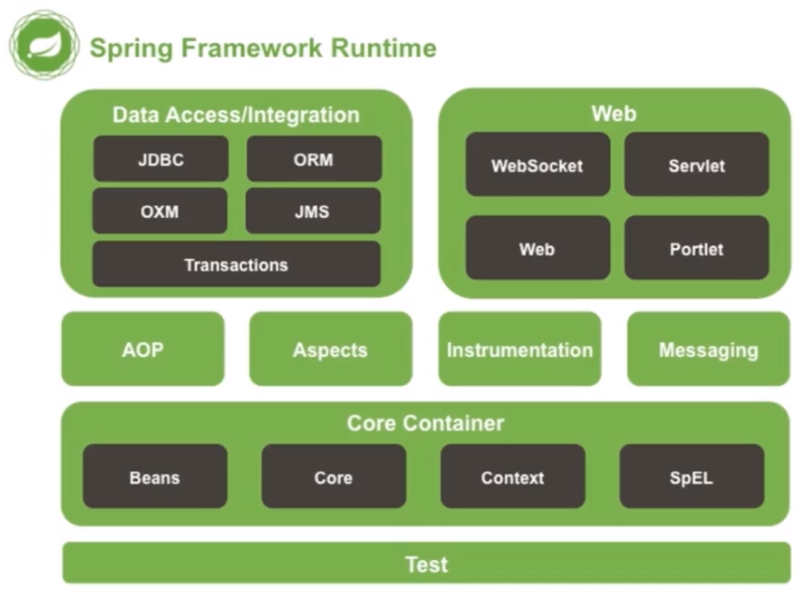
框架与类库的区别
- 框架一般是封装了逻辑、高内聚的,类库则是松散的工具组合
- 框架专注于某一领域,类库则是更通用的
IoC 与 DI 的关系
- IoC: 控制权的转移,应用程序本身不负责依赖对象的创建和维护,而是由外部容器负责创建和维护(获得依赖对象的过程被反转了)
- DI: 由 IoC 容器在运行期间,动态地将某种依赖关系注入到对象之中
IoC 是一种设计思想,DI 是这种思想的一种实现
示例
添加接口
public interface OneInterface {
String hello(String word);
}
实现接口
public class OneInterfaceImpl implements OneInterface {
public String hello(String word){
return "Word from interface "OneInterface": " + word;
}
}
添加配置文件
<?xml version="1.0" encoding="UTF-8"?>
<beans xmlns="http://www.springframework.org/schema/beans"
xmlns:xsi="http://www.w3.org/2001/XMLSchema-instance"
xsi:schemaLocation="http://www.springframework.org/schema/beans
http://www.springframework.org/schema/beans/spring-beans.xsd" >
<bean id="oneInterface" class="com.karonda.ioc.interfaces.OneInterfaceImpl"></bean>
</beans>
添加测试
@RunWith(BlockJUnit4ClassRunner.class)
public class TestOneInterface extends UnitTestBase {
public TestOneInterface(){
super("classpath*:spring-ioc.xml");
}
@Test
public void testHello(){
OneInterface oif = super.getBean("oneInterface");
System.out.println(oif.hello("world"));
}
}
其中 UnitTestBase 代码:
public class UnitTestBase {
private ClassPathXmlApplicationContext context;
private String springXmlpath;
public UnitTestBase() {}
public UnitTestBase(String springXmlpath) {
this.springXmlpath = springXmlpath;
}
@Before
public void before() {
if (StringUtils.isEmpty(springXmlpath)) {
springXmlpath = "classpath*:spring-*.xml";
}
try {
context = new ClassPathXmlApplicationContext(springXmlpath.split("[,\s]+"));
context.start();
} catch (BeansException e) {
e.printStackTrace();
}
}
@After
public void after() {
context.destroy();
}
@SuppressWarnings("unchecked")
protected <T extends Object> T getBean(String beanId) {
try {
return (T)context.getBean(beanId);
} catch (BeansException e) {
e.printStackTrace();
return null;
}
}
protected <T extends Object> T getBean(Class<T> clazz) {
try {
return context.getBean(clazz);
} catch (BeansException e) {
e.printStackTrace();
return null;
}
}
}
源码:learning-spring
Bean 容器初始化
两基础个包
- org.springframework.beans:BeanFactory 提供配置结构和基本功能,加载并初始化 Bean
- org.springframework.context:ApplicationContext 保存了 Bean 对象并在 Spring 中被广泛使用
初始化 ApplicationContext 方式:
- 本地文件
- Classpath
- Web 应用中依赖 servlet 或 Listener
备忘:在 IDEA 中构建 Maven Spring 项目
File --> New --> Project
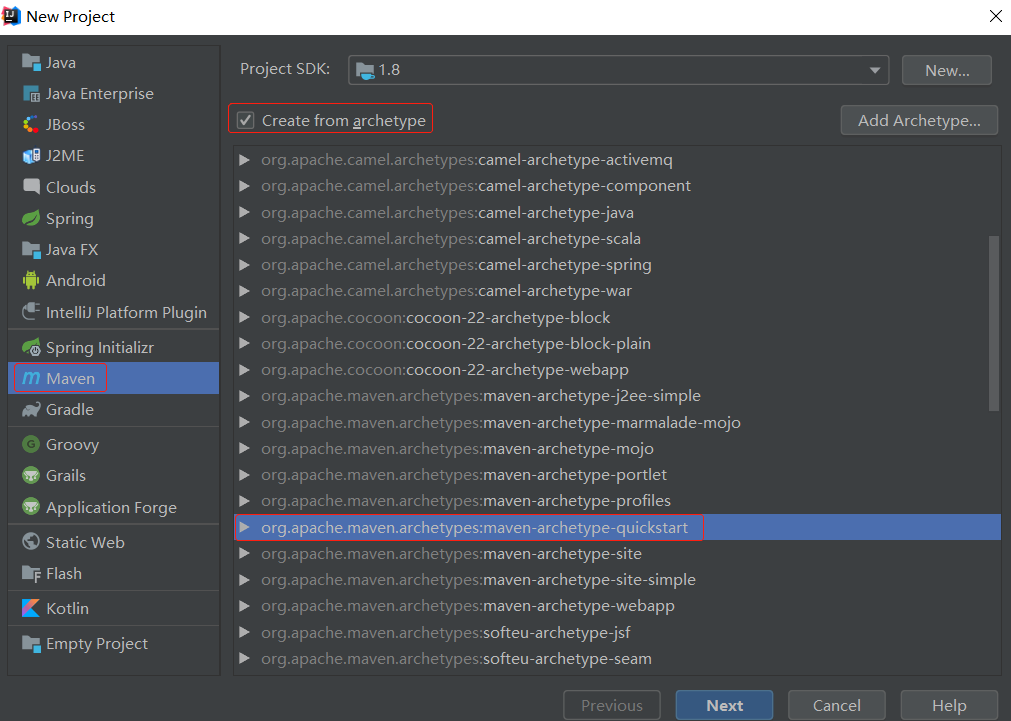
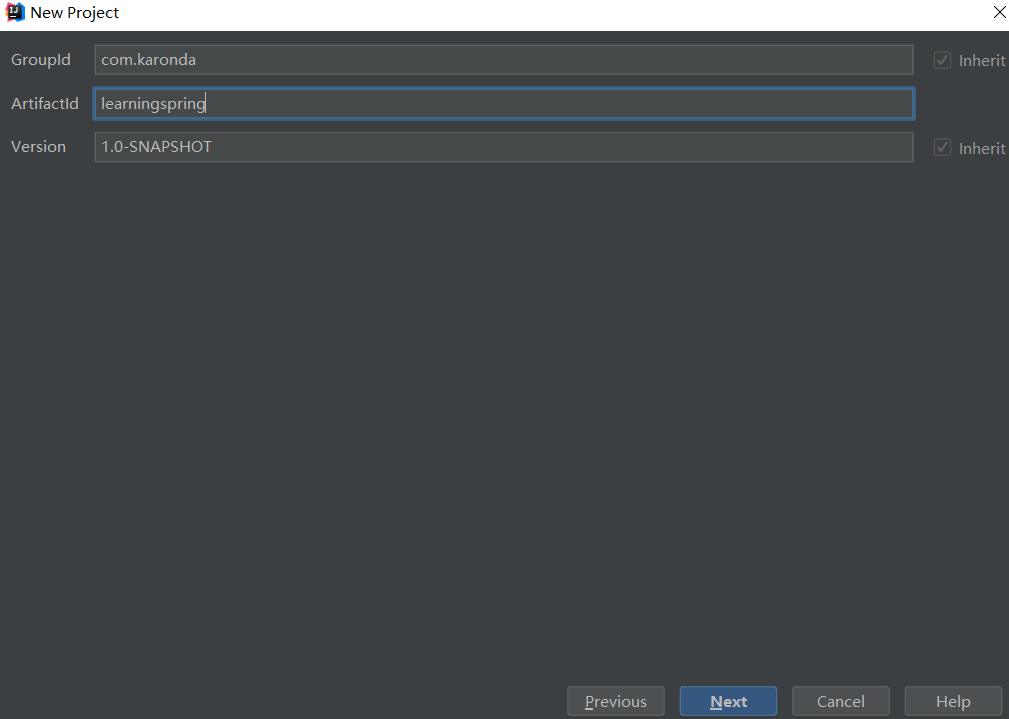
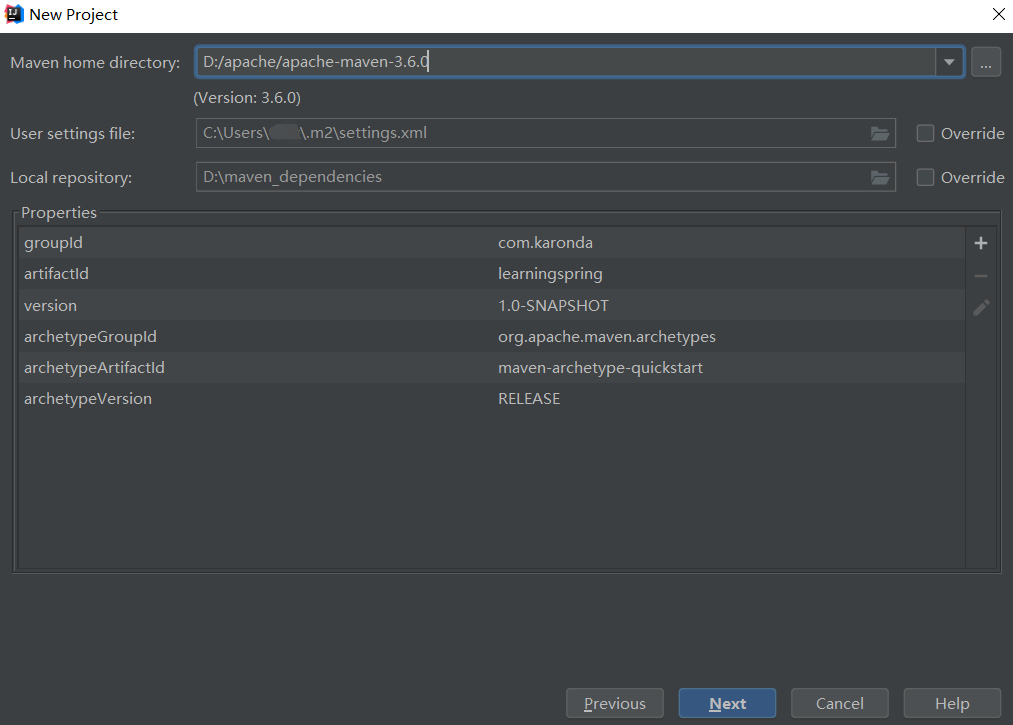
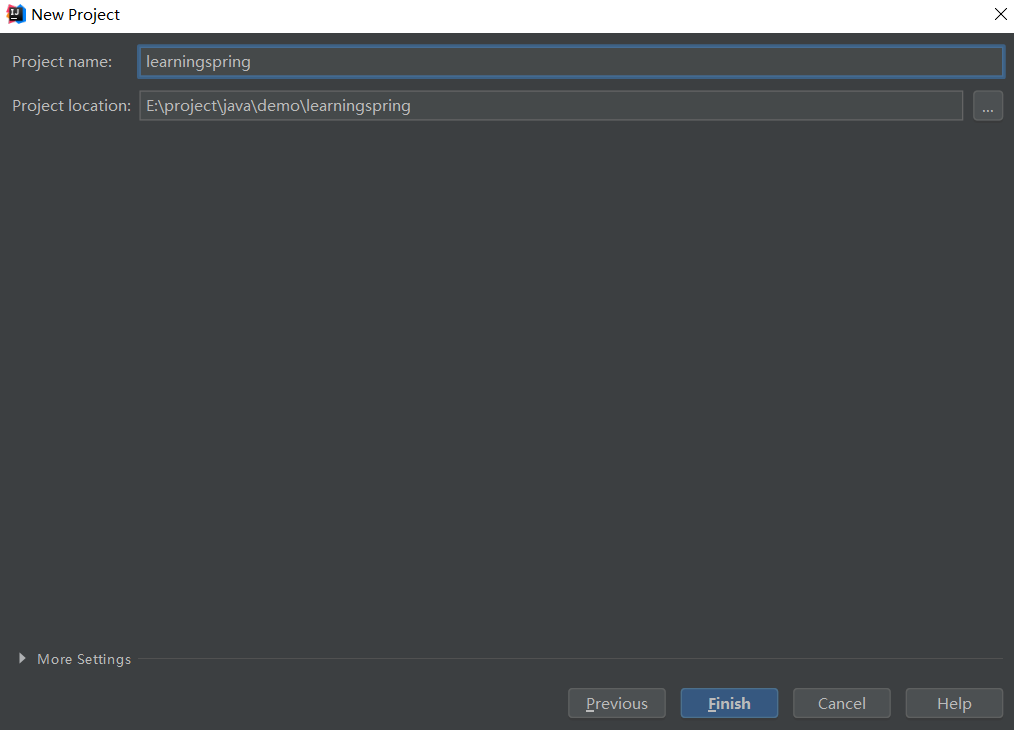
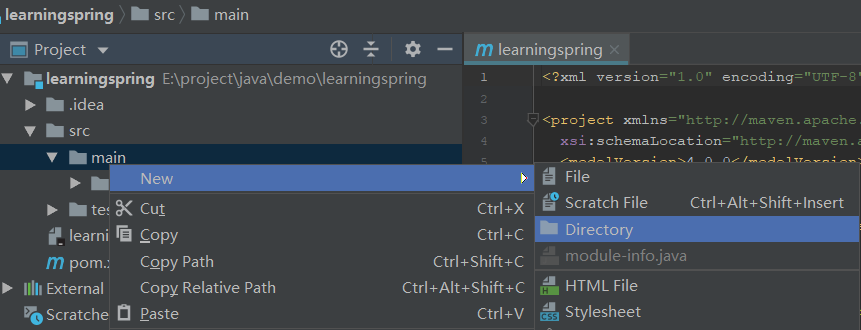
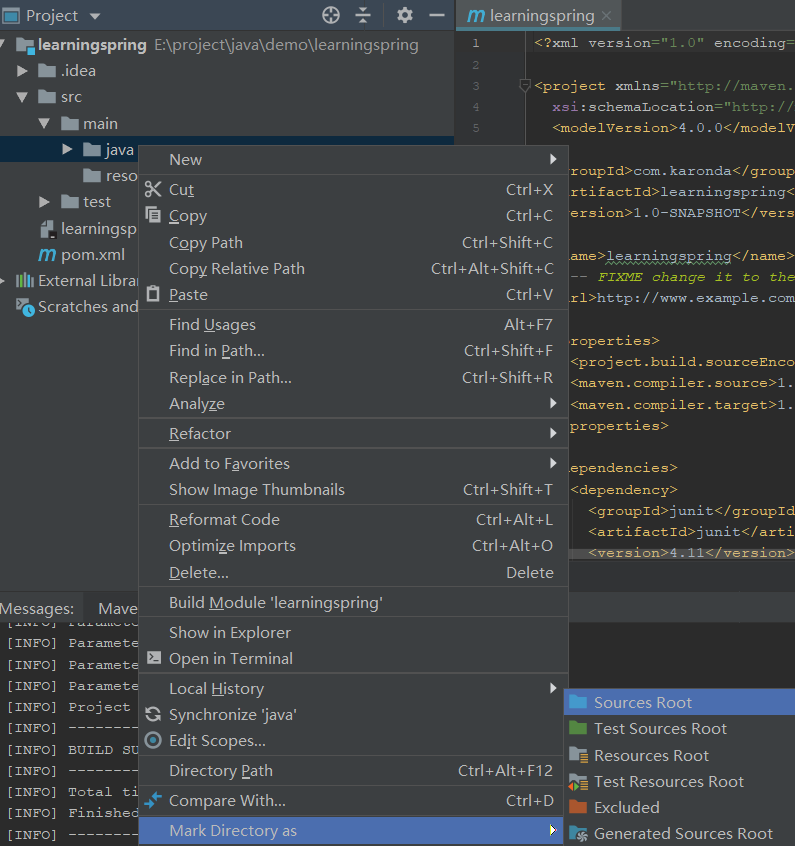
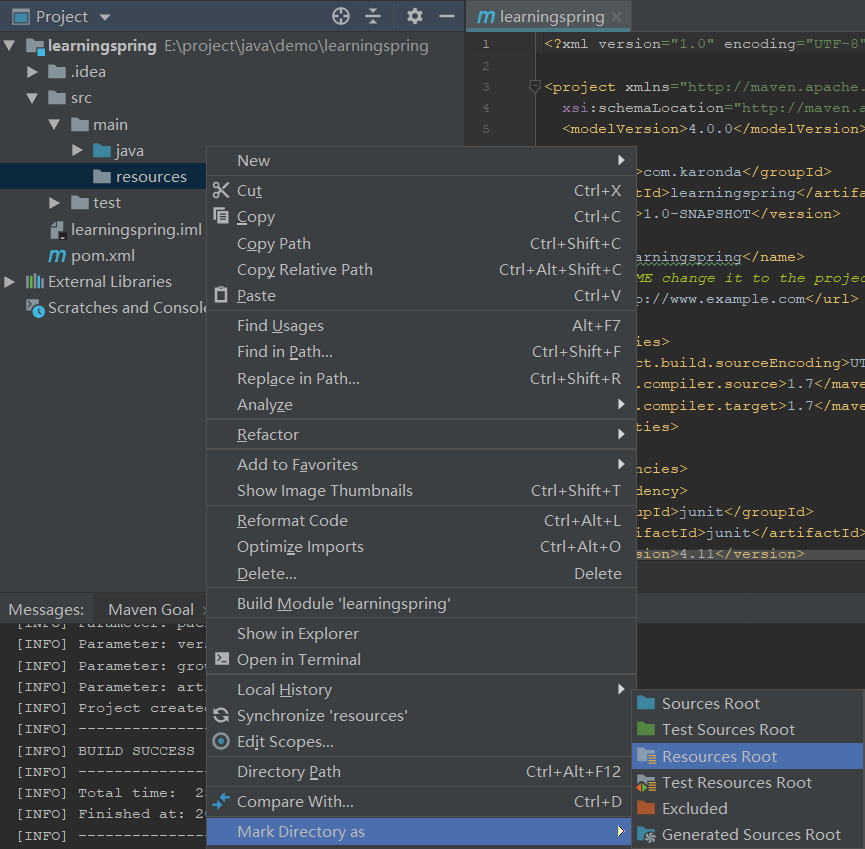
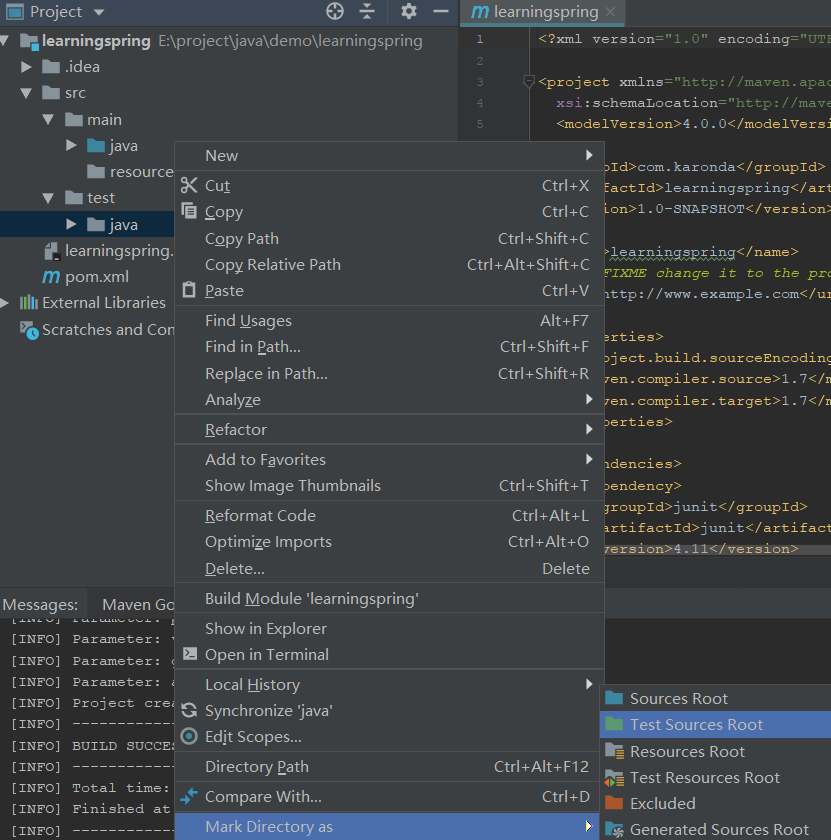
在 pom.xml 中添加依赖包:
<dependency>
<groupId>org.springframework</groupId>
<artifactId>spring-context</artifactId>
<version>4.3.18.RELEASE</version>
</dependency>
<dependency>
<groupId>org.springframework</groupId>
<artifactId>spring-test</artifactId>
<version>4.3.18.RELEASE</version>
<scope>test</scope>
</dependency>
<dependency>
<groupId>junit</groupId>
<artifactId>junit</artifactId>
<version>4.12</version>
<scope>test</scope>
</dependency>